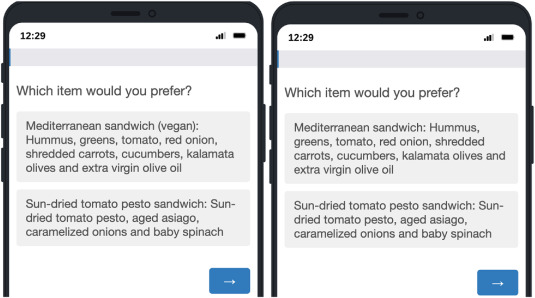If we want to lower our carbon emissions, persuading people to switch to a vegan diet – or at least reduce their meat consumption – is a good place to start. Vegan diets have around half the climate footprint of the average diet, and if the world was to shift to a vegan diet, food-related emissions could be cut by up to 70 percent.
Persuading people to switch entirely is difficult, but there are those out there studying how to nudge meat-eaters into choosing vegetarian and vegan options every once in a while. A recent study has looked at one option, which appeared to increase the number of people choosing vegan food over vegetarian or meat alternatives.
The team went in with the hypothesis that labeling food as vegan or vegetarian, while proving useful for people avoiding meat and dairy, has a negative impact on people who do choose to eat it. To investigate, the team conducted randomized controlled trials.
The experiment took place on people attending MIT Media Lab events, for which they were asked to make meal choices, as well as a field study. The guests, who didn’t know they were taking part in a study until afterward, were asked to choose between two meal options, all of which were combinations of vegan, vegetarian, and meat options. Filling out their choices via a Google Form, the online participants were either shown a breakdown of the ingredients in both options, or the same but with helpful “vegan” or “vegetarian” labels on those foods.

As they had suspected, people appear to view the vegan labels negatively.
“Overall, our results showed that vegetarian and vegan labels negatively impact consumers’ likelihood to choose the labeled options,” the authors wrote in their study.
“In each field study, the (vegan) option 1 was preferred by participants when it was unlabeled. However, when it was labeled the other option 2 was instead preferred. The negative impact of labels was shown to be statistically significant in each of the field studies.”
The authors noted that the online part of the experiment allowed them to collect demographic information, and found that vegetarians and vegans were no more likely to eat meat when these labels were not present, even if it would be a tad more annoying to read.
“The present studies demonstrate how a simple and low-cost change to typical menus could help nudge these consumers to reduce meat consumption, towards more plant-based alternatives, without reducing their freedom of choice,” the team concluded. “Specifically, our study results suggest vegetarian and vegan labels should be removed from menu items to help guide US consumers towards more sustainable diets.”
The study is published in the journal Appetite.
Source Link: If You Don't Label Vegan Food As Vegan, People Are More Likely To Eat It